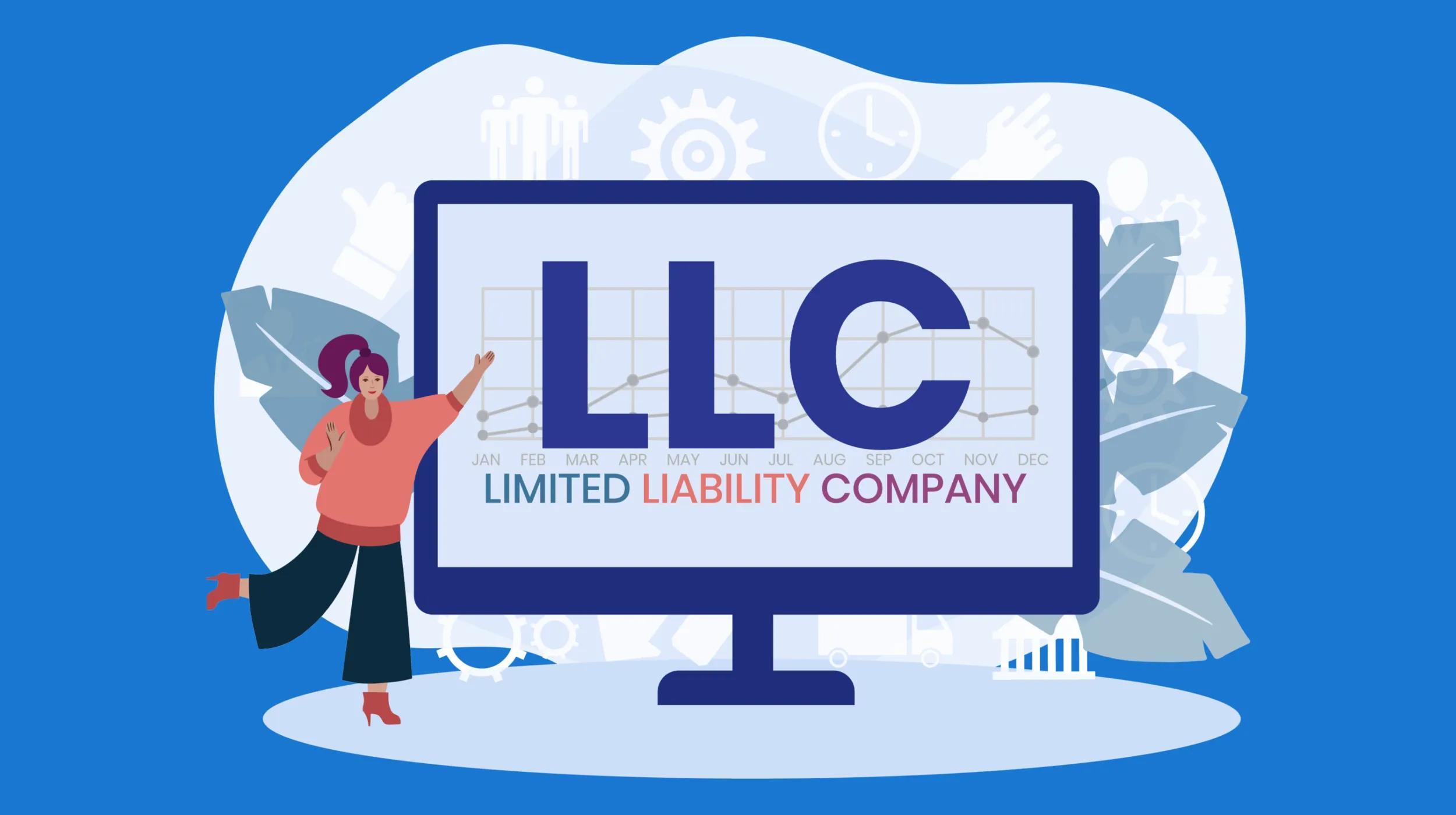For many ventures, your domain name is your online business identity. With the rise in cybercrime cases such as domain name hijacking, it’s never been more critical to keep your domain name safe.
By understanding domain names and how they work, and by following a few tips and implementing domain security best practices, you’ll reduce the chances of losing your domain name. In this post, we’ll share why domain name security matters as well as tips and tools to help you protect your domain name.
Your business needs a website.
Why domain name security matters
Imagine a typical day in your business. You’re going about your daily tasks when suddenly you receive a message from a long-time customer that they cannot access your website. Instead of your usual homepage, they’re seeing a ton of unrelated ads.
You rush to check your website and log in to your domain and hosting provider, only to find your worst fears have come true. You no longer own your domain. It’s expired, and someone else registered it.
Hours of hard work have vanished. Your content—all your blog posts, videos, SEO efforts—everything is gone. You’re losing out on sales and opportunities to grow your audience, but what’s worse, your brand reputation could be tarnished.
Or take this domain name security nightmare: a bad actor gains access to your account through publicly available WHOIS information, hijacks your domain, and points it to another website. They might even gain access to your emails and transfer the domain to their name. You could be facing a long and drawn-out legal battle to get your domain back.
Obviously, neither of these scenarios is something any business owner wants. The good news is that they can be avoided. All it takes is implementing some domain name security best practices.
14 tips to help improve domain name security
If you want to make sure that your domain name is secure, follow the steps below.
Read on to protect one of your business’s most valuable assets.
1. Use a reputable registrar
If you do a quick Google search for the best domain name registrar, you’ll see millions of results. Even ICANN—the nonprofit organization responsible for coordinating the management of the technical side of domain registrations—has hundreds of domain name registrars listed on its website.
But not all domain registrars are created equal.
Opt for a domain registrar, like GoDaddy, that has a good reputation, takes security seriously, and has tools in place that facilitate domain name security.
Want to see if your domain is available? Give it a try below:
2. Enable registrar lock

When you register your domain name, most registrars, including GoDaddy, will automatically lock it. This prevents unauthorized changes, including transfer to another registrar.
ICANN regulations state that when a transfer request has been filed, the registrar has five working days to respond. If there is no response, the transfer request will automatically be approved.
In other words, if someone other than you requests that the domain name be transferred to another registrar, the transfer will be automatically approved without a domain lock in place.
However, certain changes to your domain name settings might require you to unlock your domain. If that’s the case, be sure to lock it immediately after you’re done.
3. Choose a strong password
A strong, unique password is a necessity for all your online accounts. This includes not only your domain registrar’s account but also the email account associated with your domain registration contact information.
But what makes a strong password?
A strong password usually contains at least eight to twelve characters, consisting of uppercase and lowercase letters, numbers, and symbols. The downside to a strong, unique password is that it’s not always easy to remember.
Consider using a password manager like LastPass, 1Password, or Dashlane. Password managers keep all your passwords safe so you don’t have to remember them. Instead, you just need to remember a single master password that unlocks your password manager vault.
Password managers can also generate secure passwords for you, so you don’t have to remember everything that goes into creating a strong password.
4. Enable two-factor authentication (2FA)
In addition to having a strong password, it’s a good idea to set up two-factor authentication for your most important online accounts. With two-factor authentication, you’ll have to enter your password and use an additional method of verifying your identity.
This can include:
- A text message with a code sent to your phone
- An email with a special authorization code
- A code generated by a third-party app such as Google Authenticator, Authy, or similar
Once you set up two-factor authentication for your domain registrar’s account, even if someone gains access to your email, they won’t be able to log in without entering that special authorization code.
5. Use an SSL certificate
An SSL certificate enables websites to use the secure HTTPS protocol. An SSL certificate is a data file that’s hosted on a website’s origin server.
It contains information such as:
- The domain name for which the certificate was issued
- The person or organization that the certificate was issued to
- Who issued the certificate
- Issue and expiration date of the certificate
- Public key, which is a long string of characters used to encrypt and decrypt data passed between your website’s server and incoming traffic
In short, this information ensures that your visitors’ sensitive information is encrypted so it doesn’t fall into the wrong hands. It also prevents hackers from creating a fake version of your website and verifies the ownership of the website.
Most domain registrars have the option to purchase an SSL certificate directly from them, making domain name security easier to manage. We’ve covered what an SSL is and how you can add one to your website, in this guide.
6. Enable privacy protection
Many domain registrars offer automatic privacy protection for your domain. This is also known as WHOIS privacy. By default, as soon as you register a domain name, some of your contact information may be visible online.
WHOIS privacy masks that information so that it’s not publicly accessible. Some domain registrars offer this for free, while others will charge a small fee for domain protection on top of the domain registration cost. Regardless, it’s well worth paying a little extra to ensure your information cannot be accessed by anyone online.
Editor’s note: GoDaddy offers basic WHOIS privacy for all domains registered through us at no extra cost to you.
7. Implement DNSSEC and monitor DNS configurations
Securing your domain at the DNS layer is crucial to prevent attacks like DNS spoofing and cache poisoning. By implementing DNSSEC (Domain Name System Security Extensions), you add a layer of cryptographic authentication to your DNS data.
This ensures that visitors reach your genuine website and not a malicious replica.
In addition to DNSSEC, it’s important to monitor your DNS traffic for any suspicious activity. Using private managed DNS servers allows you to configure specific security protocols and block harmful DNS connections.
Keeping your DNS configurations up to date helps protect against vulnerabilities that attackers might exploit.
8. Register similar domain names to prevent typosquatting
Typosquatting occurs when malicious actors register domain names that are similar to yours, often differing by just a character or using a different domain extension. They then use these domains to mislead your customers or distribute malware.
To protect your brand identity and prevent this, consider registering common misspellings and alternative domain extensions of your domain name.
With GoDaddy’s domain registration services, you can easily secure these additional domains to protect your brand identity. By securing these similar domains, you can redirect users who mistakenly type the wrong address and prevent others from misusing your brand.
9. Renew your domain regularly
Forgetting to renew your domain name could cause serious damage. For one, you run the risk of a competitor scooping it up. Secondly, a domain squatter could register your domain name and either refuse to sell it back to you or demand an exorbitantly high amount of money for it.
Whenever possible, ensure that your domain is set up with automatic renewal.
GoDaddy makes it easy to turn this option on in your domain management area.
In addition, consider registering your domain for a longer period of time. For example, instead of one year, opt for two, five, or even ten years. You’ll save money in the long run and gain immediate peace of mind in terms of domain name security.
10. Keep your contact details with the registrar up to date
Business address or email changes are not uncommon these days. However, be sure to keep your contact information up to date with your domain registrar.
Get into the practice of regularly checking your contact details and updating them whenever they change. This includes keeping your email, phone number, and contact address current.
It’s a good idea to always have this information associated with you rather than an employee or contractor (e.g., website designer). That way, if that employee ever leaves, you avoid the risk of losing your domain because you’ve disabled their email address or company phone number.
11. Beware of phishing emails

Unfortunately, phishing emails are prevalent. They could seem completely innocent and as if they’re coming from someone you know or a business you trust. In some cases, they might even appear to come from a government or other official agency.
Sometimes, bad actors use phishing as a tactic to gain access to domain names.
Be wary of any emails that ask you to click suspicious links or want access to your sensitive information. Most reputable companies won’t ask for your SSN, credit card information, or similar in an email.
If you’re not sure that the email is legitimate, it’s best to ignore it rather than risk exposing your financial or other sensitive information.
12. Keep your domain registrar information safe
Lastly, keep the information about your domain registrar safe. This includes storing your login email or username and password in a secure location, such as a password manager.
Don’t share your login information through a text message, email, or chat either.
Instead, use your password manager to securely share the password with other members on your team. Alternatively, some domain registrars will allow you to invite other users to your account so they can help you manage the more technical aspects.
13. Use an email address not associated with your domain when registering
When registering your domain, it’s wise to use an email address that isn’t linked to the domain itself. For example, instead of using admin@yourdomain.com, opt for a personal email or one from a different domain.
This precaution ensures that you retain access to important communications from your registrar even if your domain is compromised. In the event of hijacking, having an independent email helps you prove ownership and regain control more swiftly.
Additionally, avoid listing third parties, such as web designers or developers, as the registrant of your domain. Keeping the registrant information under your control prevents unauthorized transfers and potential disputes over domain ownership.
14. Keep your payment information up to date
An expired credit card or outdated payment method can lead to unintended domain expiration, causing you to lose your domain name.
While some domain protection plans can hold your domain name for an additional 90 days if your payment method expires at renewal, it’s best to avoid this risk entirely.
Regularly check and update your payment information with your domain registrar to ensure uninterrupted domain ownership and prevent potential downtime or loss of your domain.
Tools to help with domain name security
Now that you know how to protect your domain name, let’s talk about a couple of tools that can help you with domain name security.
GoDaddy SSL
As mentioned earlier, an SSL certificate is one way to make your domain more secure. GoDaddy offers a variety of SSL certificate plans that can help show your visitors that your website is secure and trustworthy, as well as prevent bad actors from creating fake versions of your website.
You can choose between Domain Validation (DV), Organization Validation (OV), and Extended Validation (EV) SSL certificates, based on your business needs.
If you have multiple domains to protect, a multi-domain SAN SSL might be your best option. For many subdomains, you might opt for the Wildcard SSL.
Domain protection
In addition to SSL certificates, GoDaddy also offers domain protection. Whenever you register a domain name, you’ll get free basic WHOIS privacy that masks your contact information. However, you can also opt for Full or Ultimate Domain Protection.
These two plans offer additional features that protect your domain against hijacking and other threats. They can also help prevent accidental transfers and even hold your domain name for an additional 90 days in the event your payment method expires at renewal.
Final thoughts on domain name security
Your domain name represents your business and your brand online—so make keeping it secure a standard way of doing business. By following the tips shared in this article, you’ll be well on your way to making sure that your domain is protected.








